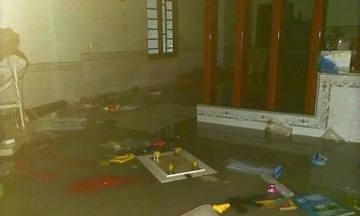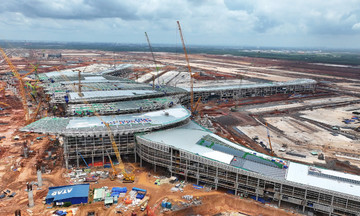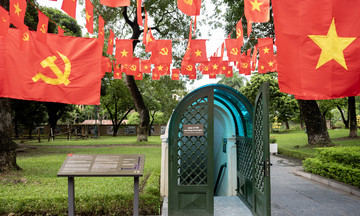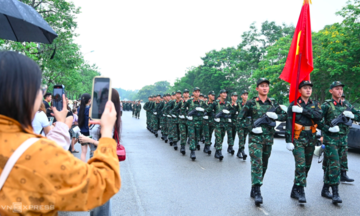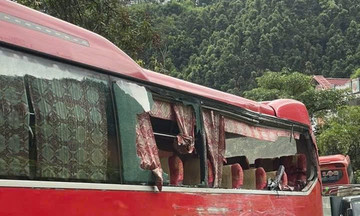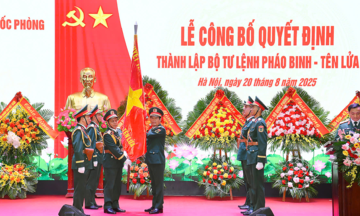Speaking at the first Congress of the Ministry of Construction's Party Committee for the 2025-2030 term on the morning of 5/8, Prime Minister Pham Minh Chinh emphasized the need to accelerate administrative procedure reform in the construction sector, particularly regarding construction permitting. He proposed that when a land plot has sub-area planning with clear regulations on construction ratios, greenery, height, and distance between structures, people should have the right to build according to these parameters without needing a permit.
"If a house is permitted for 20 floors but is built to 21, it will be demolished. There's no need to apply for a permit anymore," the prime minister said.
He requested the Ministry of Construction and relevant agencies to continue improving regulations, reacting flexibly to reality, shifting management thinking from pre-inspection to post-inspection, promoting digital transformation, and cutting unnecessary procedures to remove bottlenecks hindering development.
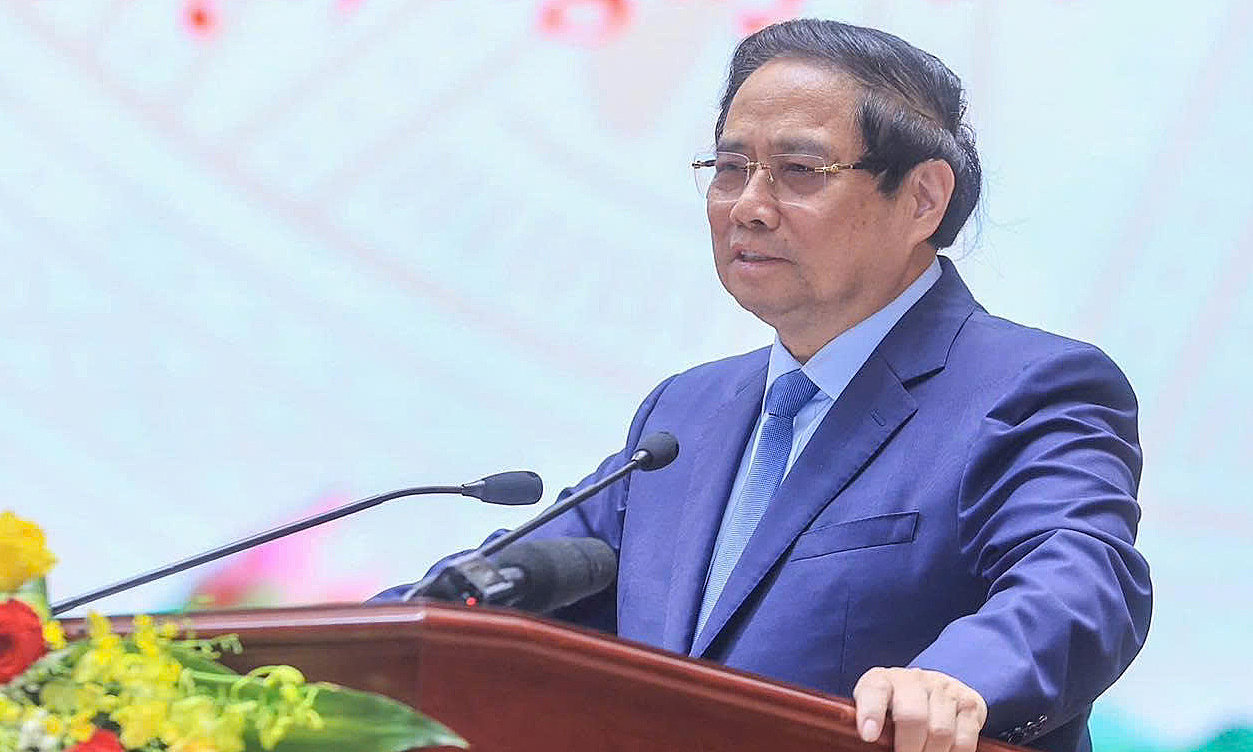 |
Prime Minister Pham Minh Chinh speaks at the Ministry of Construction's Party Congress. Photo: Anh Duy |
Prime Minister Pham Minh Chinh speaks at the Ministry of Construction's Party Congress. Photo: Anh Duy
According to the prime minister, regulations must be proactive and act as a driving force, not a barrier. One of the current prominent challenges is the instability of the real estate market, with a severe shortage of social housing while high-end commercial housing is in surplus. A 120,000 billion VND credit package for social housing remains undisbursed due to procedural obstacles.
He praised the model of some urban areas in Hue City, which combine all three housing segments with synchronous infrastructure. This is considered a bright spot in policy and should be replicated nationwide.
The country has invested over 600,000 billion VND in transport.
In his speech, the prime minister dedicated considerable time to infrastructure breakthroughs – one of the three strategic pillars. He stated that during the 2020-2025 term, the country invested over 600,000 billion VND in transport, accounting for about 24% of total development investment. "Transport leads the way. Without concentrating resources and pushing back against corruption, negativity, and waste, there would be no projects like today," he emphasized.
Citing the Long Thanh airport project, the prime minister said that in early 2023, he visited the site and discovered that the project management board didn't have a seal, meaning it couldn't operate. Approximately 5,000 hectares of land had not been cleared. However, now, the fundamental obstacles have been removed, and the project is on track to be completed in 2025, something previously unthinkable.
He believes that highways, airports, and seaports are creating substantial development space, leading to urbanization, jobs, livelihoods, and service systems. "Without good infrastructure and good people, even rolling out the red carpet won't attract investors," he said, citing the examples of Hai Phong and Quang Ninh – localities with all five modes of transport and years of continuous double-digit growth.
However, he also pointed out several issues in urban development, such as traffic congestion, environmental pollution, and lack of synchronized infrastructure. The significant advantage of sea and inland waterways – with over 3,000 km of coastline stretching from Mong Cai to Ha Tien – hasn't been effectively exploited due to the lack of appropriate policies.
The prime minister requested that in the next term, the Ministry of Construction contribute to breakthroughs in all three strategic pillars, including transport infrastructure. Specific goals include 3,000 km of highways by 2025, 1,000 km of coastal roads, developing inland waterway transport, implementing railway and seaport projects, and promoting multimodal connectivity to reduce logistics costs and enhance national competitiveness.
To achieve this, the Ministry of Construction's Party Committee must identify key priorities in its direction, enhance organizational capacity, embrace green transformation, promote a circular economy, and improve regulations to maximize social resources, especially through public-private partnerships. "We can't do everything, but we must do the right things in the right places, creating a ripple effect," the prime minister said.
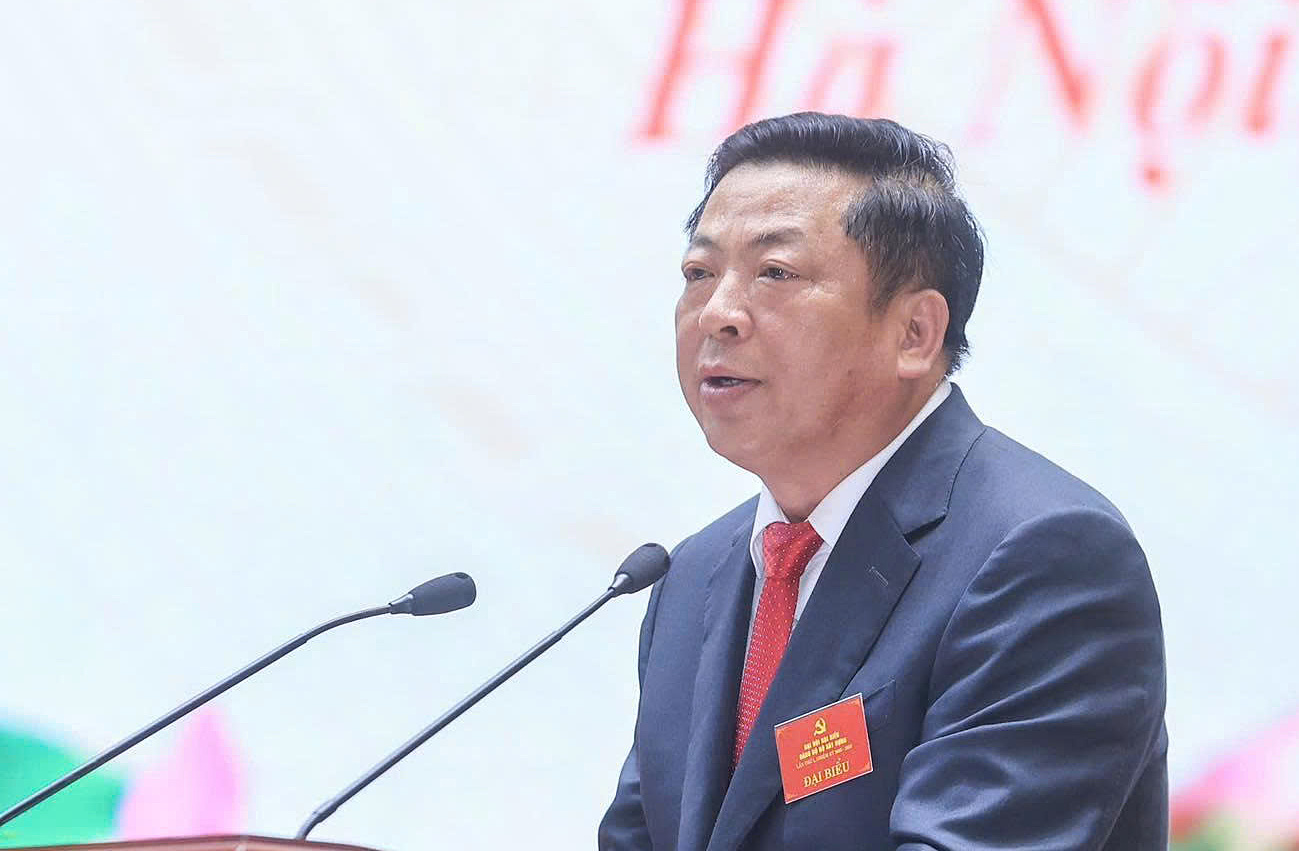 |
Minister of Construction Tran Hong Minh. Photo: Anh Duy |
Minister of Construction Tran Hong Minh. Photo: Anh Duy
Earlier, Minister of Construction Tran Hong Minh stated that for the 2025-2030 term, the Ministry's Party Committee has identified six key tasks and three strategic breakthroughs. The Ministry has accurately identified advantages, frankly pointed out bottlenecks in regulations, infrastructure, and resources; and determined the right direction for effective implementation in the coming period.
He reported that the legal document system has been consolidated, decentralization, delegation of authority, and administrative procedure reform have made clear progress; the appearance of urban and rural infrastructure has changed significantly, and construction cost management and logistics services have seen positive developments, contributing to enhancing national competitiveness.
Doan Loan



